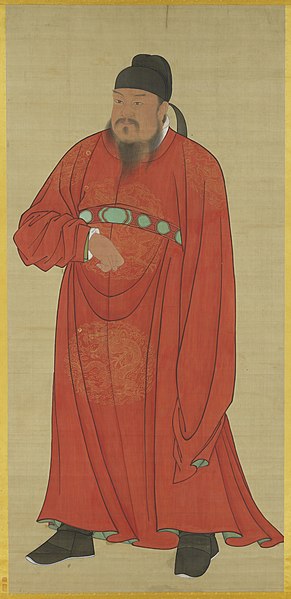The Early Lý dynasty, also known in historiography as the Former Lý dynasty or Anterior Lý dynasty, officially Vạn Xuân, was a dynasty of Vietnam that existed from AD 544 to 602. Its founder Lý Bí assumed the title of "Southern Emperor". The capital was located at Long Biên within modern-day Hanoi.
Buddhist inscription written in 601 CE in Tran Quoc pagoda
Li or Lee is a common Chinese surname, it is the 4th name listed in the famous Hundred Family Surnames. Li is one of the most common surnames in Asia, shared by 92.76 million people in China, and more than 100 million in Asia. It is the second-most common surname in China as of 2018, the second-most common surname in Hong Kong, the most common surname in Macau and the 5th most common surname in Taiwan, where it is usually romanized as "Lee". The surname is pronounced as in Cantonese, Lí (poj) in Taiwanese Hokkien, but is often spelled as "Lee" in Hong Kong, Macau, Taiwan, Thailand and many overseas Chinese communities. In Macau, it is also spelled as "Lei". In Indonesia it is commonly spelled as "Lie". The common Korean surname, "Lee", and the Vietnamese surname, "Lý", are both derived from Li and written with the same Chinese character (李). The character also means "plum" or "plum tree".
Li Yuan (Emperor Gaozu), founder of the Tang dynasty
Lý Thái Tổ, founder of the Vietnamese Lý dynasty
Lee Family Temple, Kinmen, Taiwan




